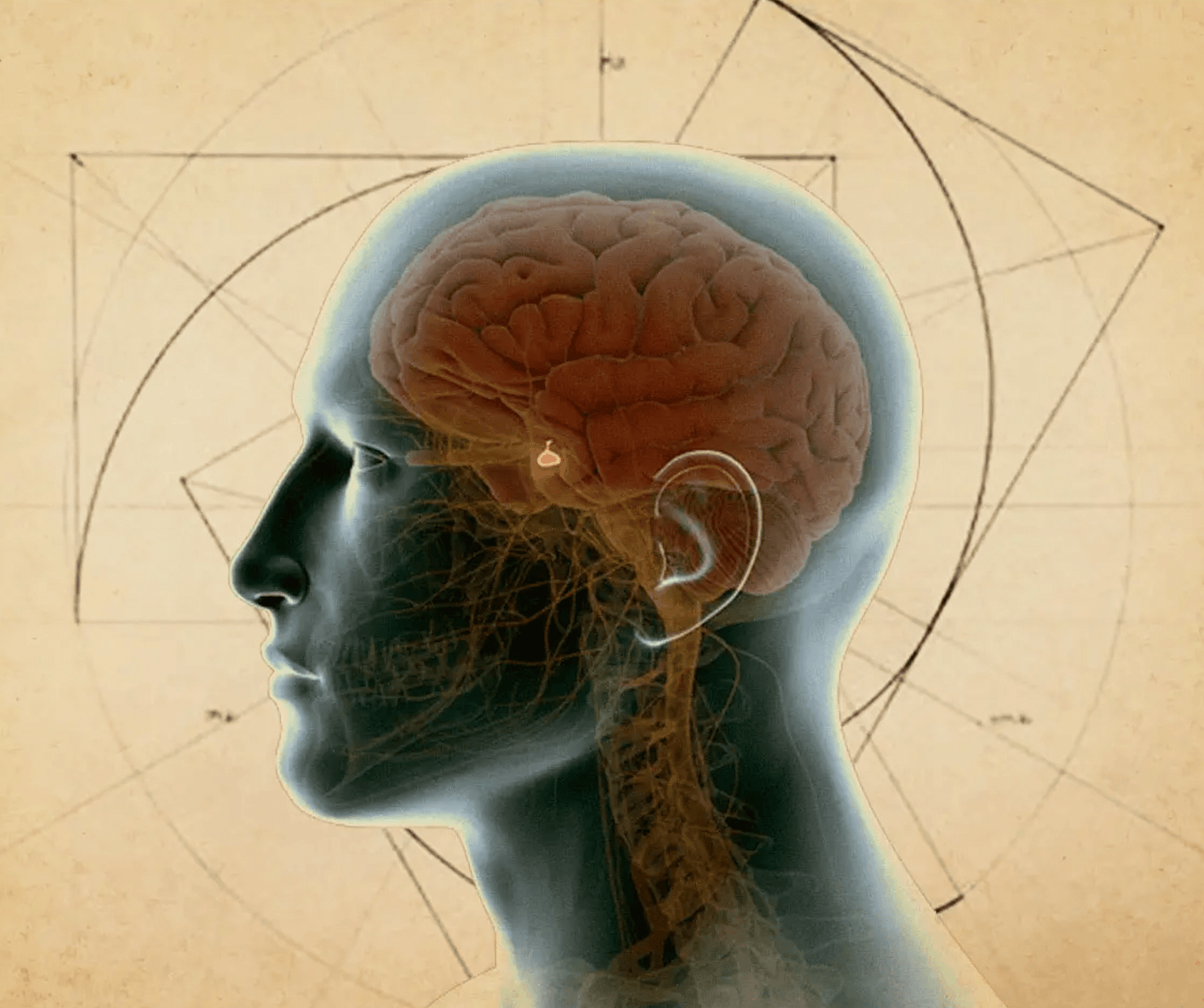The Pineal Gland: Unlocking the Secrets of the Third Eye
The pineal gland, often called the “third eye,” is a small, pea-shaped organ located in the brain. Despite its size, this tiny gland plays a significant role in regulating essential bodily functions and influencing spiritual experiences. From melatonin production and circadian rhythm control to spiritual enlightenment and higher consciousness, the pineal gland remains one of the most fascinating and mysterious parts of the human body.
What Is the Pineal Gland?
The pineal gland is located near the center of the brain, nestled between the two hemispheres. Roughly the size of a grain of rice, this small endocrine gland is responsible for producing melatonin, a hormone crucial for regulating the sleep-wake cycle and maintaining circadian rhythm. Beyond its physical functions, the pineal gland is also linked to spiritual beliefs and practices, with many traditions referring to it as the “third eye.”

Melatonin Production and Circadian Rhythm
One of the primary functions of the pineal gland is melatonin production. Melatonin is a hormone that regulates the circadian rhythm, which is the body’s internal clock governing the sleep-wake cycle.
How It Works
The pineal gland responds to light signals received through the eyes. During the day, when light levels are high, melatonin production is suppressed, helping you stay awake and alert. As darkness falls, the pineal gland increases melatonin production, signaling to the body that it’s time to rest.
Importance of Melatonin
Melatonin is crucial for maintaining healthy sleep patterns and overall well-being. Disruptions in melatonin production can lead to sleep disorders, mood changes, and a weakened immune system. This highlights the importance of maintaining a consistent sleep schedule and minimizing exposure to artificial light at night.
Pineal Gland Calcification: What You Need to Know
What Is Calcification?
Over time, the pineal gland can accumulate calcium deposits, leading to a condition known as calcification. This process reduces the gland’s ability to produce melatonin and may impact other neurochemical functions.
Causes of Pineal Gland Calcification
Several factors contribute to pineal gland calcification, including:
- Fluoride Exposure: High fluoride levels in drinking water can accelerate calcification.
- Aging: Calcification tends to increase with age.
- Diet: High-calcium diets can contribute to this condition.
Effects on Health
While the full impact of calcification is still under study, it has been linked to:
- Sleep Disorders: Reduced melatonin production affects sleep-wake cycles.
- Mood Changes: Imbalanced neurochemicals may influence emotional health.
- Cognitive Decline: Some research suggests a connection to aging-related cognitive decline.
Spiritual Significance of the Pineal Gland
The pineal gland has long been associated with spiritual beliefs and mystical experiences. In various traditions, it is considered the gateway to higher consciousness, spiritual awakening, and psychic abilities.
Third Eye and Spiritual Enlightenment
Many cultures believe that the pineal gland is the “third eye,” a mystical organ linked to spiritual insight and enlightenment. Ancient civilizations, such as the Egyptians and Hindus, depicted the third eye as a powerful symbol of wisdom and inner vision.

Psychic Abilities and Higher Consciousness
Some esoteric traditions and shamanic beliefs claim that an activated pineal gland can unlock psychic abilities such as:
- Clairvoyance: The ability to perceive information beyond ordinary senses.
- Telepathy: Mind-to-mind communication without speaking.
- Precognition: Sensing future events before they occur.
Ancient and Spiritual Beliefs
The pineal gland’s spiritual significance spans multiple cultures:
- Ancient Egypt: Symbolized as the “Eye of Horus,” representing spiritual vision.
- Hinduism: Linked to the ajna chakra, the center of intuition and insight.
- Buddhism: Considered crucial for meditation and spiritual awakening.
- Esoteric Traditions: Seen as a pathway to higher consciousness and mystical experiences.
- Shamanic Beliefs: Viewed as a gateway to the spiritual world during rituals.
Neurochemical Regulation: More Than Just Melatonin
While the pineal gland is known for melatonin production, it also influences other neurochemicals, including:
- Serotonin: A neurotransmitter that regulates mood, sleep, and emotional well-being.
- DMT (Dimethyltryptamine): A psychoactive compound linked to altered states of consciousness and mystical experiences.
DMT and Altered States of Consciousness
DMT is sometimes referred to as the “spirit molecule” because of its role in inducing profound spiritual experiences and altered states of consciousness. Although the exact function of DMT in the pineal gland is still under study, it is believed to be involved in near-death experiences and deep meditation.
How to Activate the Pineal Gland
Many spiritual practices focus on activating the pineal gland to enhance spiritual awareness and higher consciousness. Common methods include:
1. Meditation
Meditation is one of the most effective ways to stimulate the pineal gland. Focusing on the area between the eyebrows, also known as the “third eye,” is believed to activate the gland and lead to deeper spiritual experiences.
2. Binaural Beats
Listening to binaural beats that correspond to specific brainwave states can enhance meditation and stimulate the pineal gland. These audio frequencies promote deep relaxation and heightened states of awareness.
3. Sun Gazing
Sun gazing, practiced at sunrise or sunset, is believed to stimulate the pineal gland by exposing it to natural light. However, it is crucial to practice sun gazing safely to avoid eye damage.
4. Diet and Supplements
Certain foods and supplements can support pineal gland health and reduce calcification, including:
- Iodine: Helps detoxify the gland.
- Magnesium: Supports neurochemical functions.
- Antioxidants: Foods rich in antioxidants, such as spirulina and chlorella, protect against oxidative stress.
5. Yoga and Breathing Techniques
Yoga poses that stimulate the head and neck area, combined with deep breathing techniques, are believed to activate the pineal gland and enhance spiritual awareness.
Pineal Gland and Puberty
The pineal gland also influences puberty by regulating the release of gonadotropin-releasing hormone (GnRH). This hormone affects sexual development and the timing of puberty, which is linked to light exposure and melatonin production.
Seasonal Rhythms and Immune System Regulation
Seasonal Rhythms
The pineal gland responds to light changes, influencing seasonal behaviors in humans and animals. It plays a role in regulating mood, energy levels, and overall well-being throughout the year.
Immune System Regulation
Research suggests that melatonin produced by the pineal gland also impacts the immune system by enhancing the activity of immune cells. This function helps the body defend against infections and maintain overall health.
Conclusion
The pineal gland is a remarkable organ that bridges the physical and spiritual realms. From regulating melatonin production and circadian rhythms to influencing spiritual awakening and higher consciousness, it plays a pivotal role in human health and spirituality. By understanding the functions and significance of the pineal gland, you can optimize its health through meditation, diet, and spiritual practices, leading to enhanced well-being and profound spiritual experiences.
Whether you’re exploring the scientific aspects or the mystical significance of the pineal gland, this tiny organ invites us to reflect on the intricate connection between the body, mind, and spirit.
Check out our Youtube channel and listen to our free Binaural Beats tracks!


